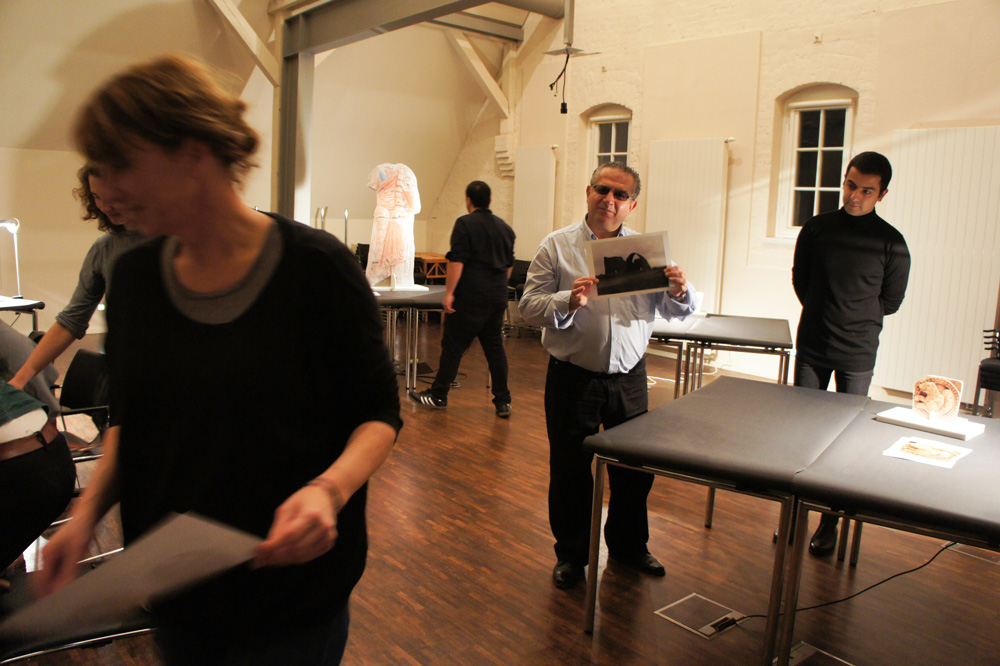Museums are one of the key sites for engaging with material cultures of the past. The last decades, however, have witnessed heated debates about the social and political role of museums. This Ph.D. project aims to contribute to the debate on the “futureability” of museum practices, that is, the competency to adapt to continuing change and the challenges of pluralistic societies.
Research
Seen as spaces of knowledge production and cultural representation, museums were and continue to be encouraged to challenge established assumptions, such as the ownership of their collections, their authority to tell certain narratives and their relationship to wider society.
Situated in the Museum of Islamic Art in Germany’s capital, Berlin, the focus of this research project is on the transforming interplay between two different sets of work practices: first, practices that are concerned with choosing, constructing and representing specific content on Middle Eastern countries deriving from the collection, that is, academic research and the creation of narratives. And second, museum practices which aim to (re-)negotiate the museum’s attitudes towards and relationships with the people who decide to use or not to use it, among them access curating, co-creative inquiry and collaborations. In this research, commonly used terms in daily museum practice such as “curating/the curator”, “expert” “the visitor”, “participation” and “engagement” to hint to the complexities hidden behind these notions are radically questioned.

Team members at a workshop facilitated to identify key themes of the exhibition “The Legacy of the Ancient Kings. Ctesiphon and the Persian Sources of Islamic Art” | Photo: Jana Braun
Exhibition and Youth work
The project is conceptualized as a museum ethnography, using interviews, document analysis and participant observation as its key methods. In its focus are two projects which aim to promote alternative processes of museum work: The first one is an exhibition project, funded by Topoi: The Legacy of the Ancient Kings. Ctesiphon and the Persian Sources of Islamic Art. In this project, workshops with team members were facilitated to enhance capacities with regard to museum communication and interpretation, and to identify key themes of the exhibition. In addition to this, workshops with a heterogeneous group of Berliners were conducted to revisit the collections in order to allow for alternative perspectives on some of the exhibition’s key objects and themes. New ways of interpretational planning and an interactive space for the exhibition were developed. The second project is called TAMAM – a collaborative project that supports cultural youth work in Islamic faith communities. Here, the Ph.D. candidate was part of the evaluation team that uses team based inquiry as a means to learn from and with our collaborating partners. Having participated actively in these two projects, provides particular insights with regard to the making of the workplace, the practices of representing culture, and the relationships between the museum and the people who are (not) using it.
The Ph.D. candidate collaborates with the Humboldt University’s Centre for Anthropological Research on Museums and Heritage. The thesis is being written within the Ph.D. program Material Cultures and Object Studies (MaCOS) of the Berlin Graduate School of Ancient Studies (BerGSAS).
